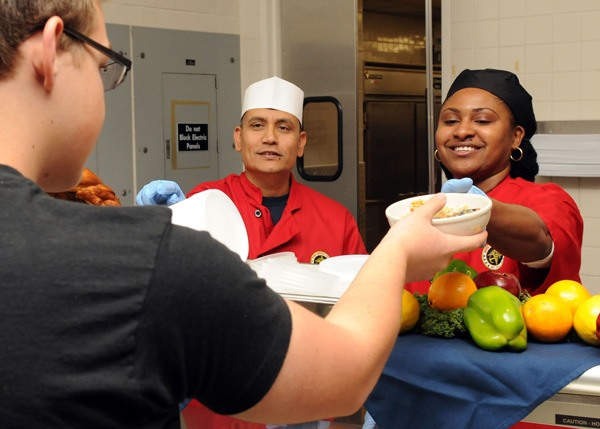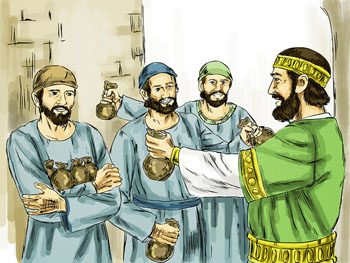In our continuing series of reflections based on the credos, or statements of belief on which we founded The Stewardship Foundation, we explore care for the poor, specifically the hungry…
We believe… that it is our responsibility to care for the poor, the sick and the disadvantaged, and to use our talents for the betterment of mankind through education, opportunity and freedom.
We need not look further than Matthew 25 verses 35-45 to understand the source:
“For I was hungry and you gave me food, I was thirsty and you gave me drink, I was a stranger and you welcomed me, I was naked and you clothed me, I was sick and you visited me, I was in prison and you came to me. … Truly, I say to you, as you did it to one of the least of these my brethren, you did it to me.”
According to the Urban Institute, poverty in the U.S. in 2021 is 13.7%, or 1 in 7 Americans. A leading charity, Feeding America puts the number of people experiencing hunger at 35 million. In our hometown of Columbus, Ohio, you can help support a local Food Pantry (see the list) or this coming Thanksgiving plan to provide a holiday meal to a family in need through the Byron Saunders Foundation.
We understand that values are the driving force in a nonprofit and that the social mission trumps profit in the bottom line.
Nonprofits and charities, like the Byron Saunders Foundation often seek funding from foundations such as ours. We work with estate planners, financial advisors, accounts and attorneys. Nonprofits and charities can benefit from our relationships within the charitable planning community. We offer:
- A cost-free resource for charitable planning
- Donor motivation seminars and events
- A philanthropic partner that embraces your mission and cause
- Opportunities to meet colleagues and potential donors and clients
We are willing to formally share what we know about the causes we support with other foundations and funders. Our success rests on our commitment, leadership, energy, enthusiasm and ideas that will emerge when we work together. Contact us now at (614) 800-7985, and please consider forwarding our message to a friend or associate.
Photo credit 222479223 © US Navy Medicine | Dreamstime.com

 Most of us consider stewardship as a theological belief that humans are responsible for the world, and should take care of it. There’s much talk of caring for creation—the animals and the environment—and many charitable opportunities for these things. In Genesis 2:15 it is written, “The LORD God then took the man and settled him in the garden of Eden, to cultivate and care for it.” So we are driven to “serve the garden in which we have been placed” and we apply this to our ways of life, teach it to our children, and practice it in our politics.
Most of us consider stewardship as a theological belief that humans are responsible for the world, and should take care of it. There’s much talk of caring for creation—the animals and the environment—and many charitable opportunities for these things. In Genesis 2:15 it is written, “The LORD God then took the man and settled him in the garden of Eden, to cultivate and care for it.” So we are driven to “serve the garden in which we have been placed” and we apply this to our ways of life, teach it to our children, and practice it in our politics.